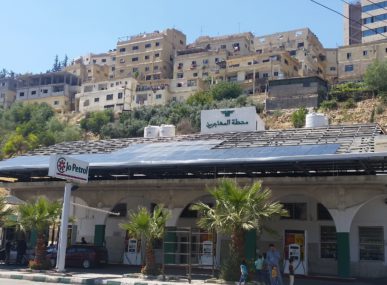Established in 2018, RISE2030 represents the vision of forward-thinking women, from a variety of complementary backgrounds: renewable energy, construction, sustainable development, and female empowerment. The plan was ambitious: the project would provide jobs and solar energy training for deprived communities in Lebanon.
RISE2030 distinguished itself from other renewable energy initiatives by making women the stars of the show. The concept appealed to the German government which, through development agency GIZ, agreed to fund the project.
Since those beginnings, the team has installed solar energy panels at various locations in Bekaa, a rural governorate in eastern Lebanon. For instance, an all-female crew set up a large-scale solar production system at the Qaroun Material Recovery Facility, which itself promotes sustainability by salvaging valuable waste.



